Day 155: The Master
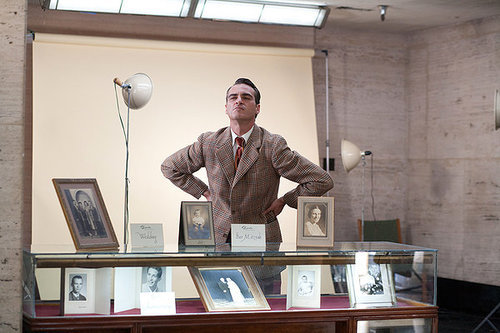
"You are the bravest boy I've ever met."
In the first seven years of his career, writer/director Paul Thomas Anderson made four films. However, in the decade since then, he's only made two, the most recent of which was 2007's There Will Be Blood, a film universally and correctly regarded as a masterpiece. Needless to say, the anticipation for his latest film, The Master, has gone through the roof, particularly following a strong showing at the Venice Film Festival, where it took the lion's share of awards, including a shared Best Actor award. So does it live up to the hype?

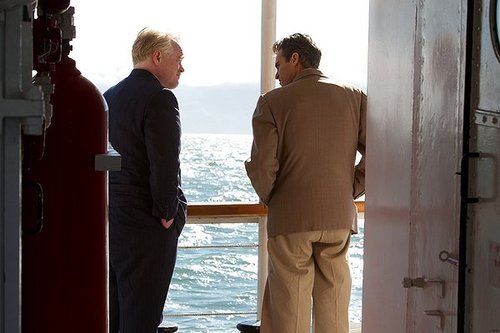
In all honesty and fairness to the film, it could never live up to the hype that's been built up around it. No film could, particularly one that flies so brashly in the face of any expectations you may have. It's almost as if Anderson is defying you to dislike the film, it's that bold an experiment. Ultimately for me, it paid huge dividends, but I could completely and totally see someone who's equally devoted to the director walking away with the opposite reaction.
Freddie Quell (Joaquin Phoenix) is a naval officer returning to the States following WWII. He's shown to be an aimless wanderer with an anger problem. He's unable to hold down a job, and seems to only take pleasure in creating moonshine out of whatever chemicals he has at his disposal. His talent for improvising drinks gets him in trouble when he is accused of poisoning a fellow worker on a cabbage farm. He makes his escape, stowing away on another sea faring vessel, albeit one carrying significantly different cargo than he's used to hauling.
Commandeering the ship is Lancaster Dodd (Philip Seymour Hoffman), a "hopelessly inquisitive" doctor who has invented a new quasi-religion dubbed "The Cause." Seeing a kindred spirit in Freddie, Dodd takes him in as a new inspiration and protege. Dodd has plans to take The Cause to another level, making it into a fully formed spiritual movement, and he wants Freddie at his side when he attempts to change the world. But Freddie's volatility threatens to unravel the already tenuous base upon which Dodd has built his empire.
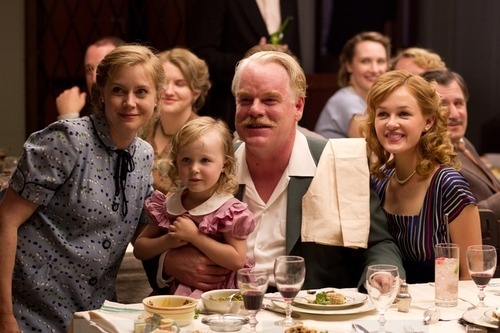
I suppose what is so maddening about The Master is that it is as formless and spontaneous as Freddie is. It doesn't have a direct through line apart from the passage of time, and anyone hoping for a sense of closure and finality will not find it here. Anderson's past work has always been built around resolution for his characters, and there's always a strong sense of an ending to his films, but this film seriously diverts from that path.
A scene late in the film has Dodd riding on his motorcycle as fast as he can toward a definite point in the distance. It's almost as if Anderson is reminding us that the film is doing anything but, a bold but effective choice. I don't know how successful The Master is as a film, but as art, it's defiantly brash and daring. Does that make it a good film? I'd leave that up to the individual to decide, but I would say yes.
The story that's been getting a lot of traction prior to the film's release is that is based on the founding of Scientology. While the parallels certainly exist between The Cause and Scientology, the film is no more about Scientology than Boogie Nights was about pornography or There Will Be Blood was about oil. It's the world the characters live in, but it only serves to illustrate the differences and startling similarities between Freddie and Dodd.
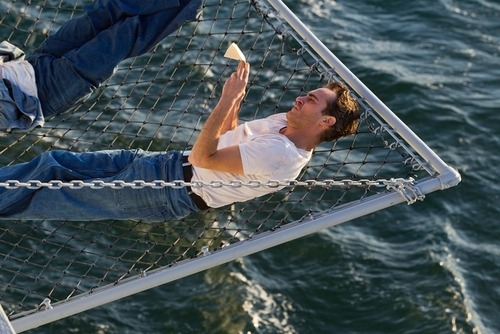
The other thing that the film's supporters and detractors seem to agree on is that the two lead performances are remarkable. It's hard to argue otherwise, as both of these actors are executing at the top of their craft. This is the strongest male tete a tete I've seen since F. Murray Abraham & Tom Hulce went at each other in Amadeus. Phoenix is good in a very showy, explosive, actor-y way, but it's Hoffman who stole the show for me.
Hoffman burns with intensity, barely able to keep his true nature in check, having moments where he can't control his animal instincts. Phoenix gets the majority of the flashy scenes, and he's outstanding, but Hoffman underplays his scenes to fantastic effect. About forty-five minutes into the film, these two have a scene, where Dodd "processes" Freddie, that is possibly the best scene that Anderson has ever put on film. It's a remarkable exercise in flawless writing, directing and acting.
Amy Adams is quite good in her role as Dodd's wife, but the rest of the supporting cast is largely forgettable. That's not to say that there's any bad performances in the film, it's just such a two-man show that everyone fades into the background by the third act. Adams does make the most of her scenes however, providing a sound voice of reason for her husband, proving again that she is one of the best actresses working in film today.
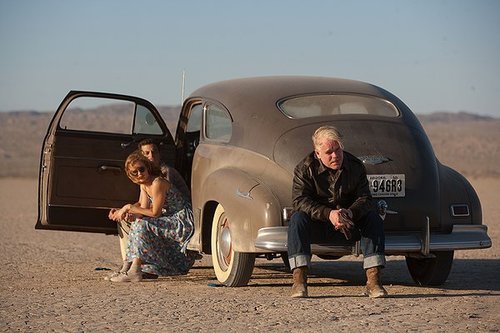
The parallels between Freddie & Dodd drive the film all the way, and I would wager to say that your enjoyment of the film is largely contingent upon how you feel about them as characters. Dodd sees in Freddie a man who is much like himself, a dreamer, an improviser, and a powder keg just waiting to explode. Dodd needs Freddie to succeed, because otherwise, they both fail. It's a love story in the most unconventional sense of the word, but no less romantic as a result.
The Master is most assuredly not a film for everyone. I can already see Anderson's fans drawing battle lines and standing firmly on either side of the film. Those who go along for the ride will defend it until their dying breath, and those who don't will seek to tear it apart. It is an epic in every sense of the word, mainly because it's an epic risk for a filmmaker who could easily be playing it safe at this point in his career. It's a comfort to know that films like The Master exist, whether you love it or hate it, it's existence proves that PT Anderson is one of the boldest filmmakers alive.
GO Rating: 4.5/5

[Photos via Rotten Tomatoes]
